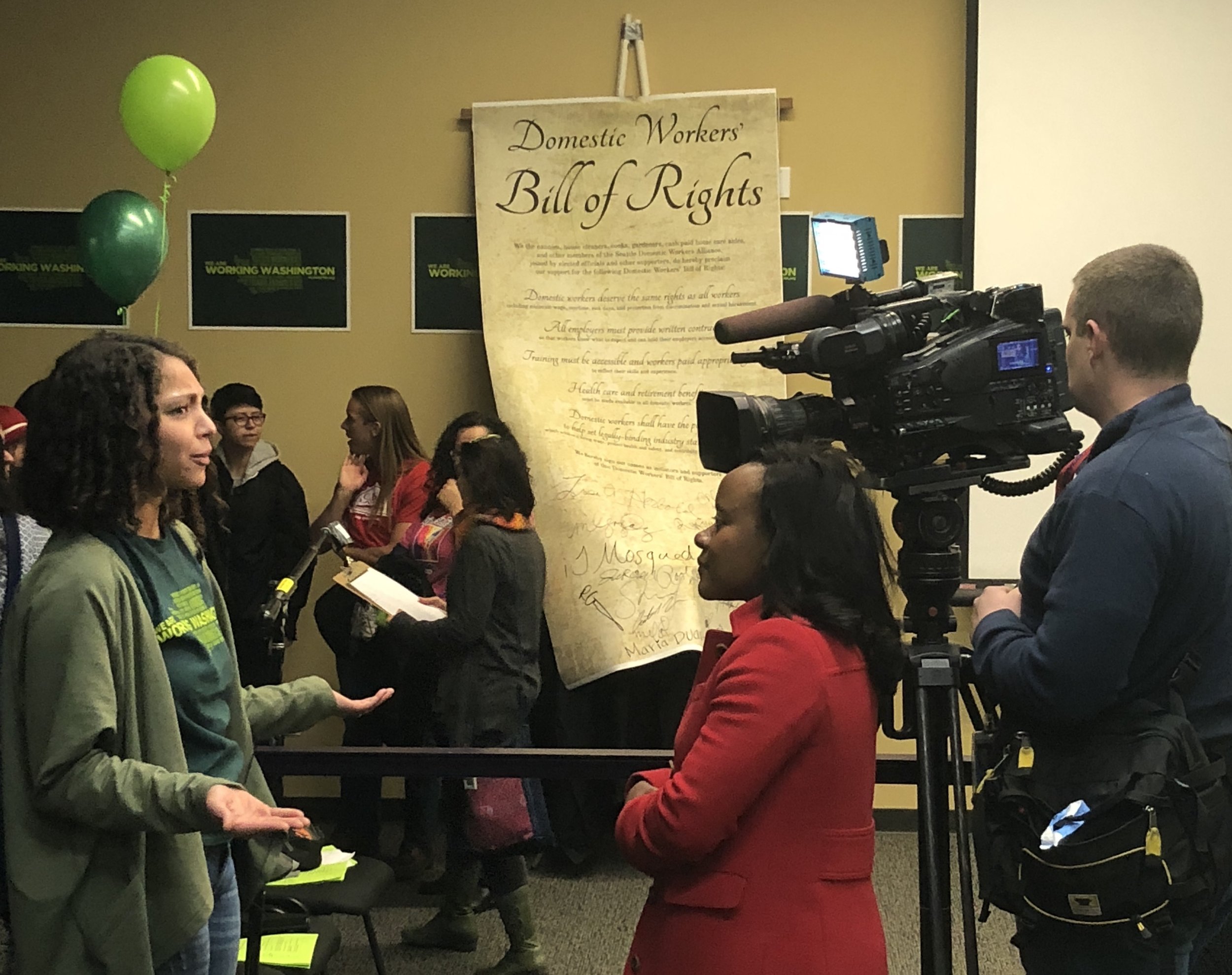The gender wage gap and its causes have been studied fairly extensively, though a lot of questions remain unanswered. We know that some of the gap is due to discrimination, and some is due to things like job segregation, differences in household responsibilities, and other factors that may sometimes influence each other.
The gender wage gap is narrower than it used to be, but has been stubbornly hovering around the same level for years. The gap is even wider for women of color. The racial wage gap is not as well studied, and also has seen less improvement over the decades — and in some cases may even be getting worse. It’s increasingly clear that we won’t reach pay parity without actively working towards it.
Though the pay gap is a national problem, there are steps we can take at the local level to address it. Newly elected Seattle City Councilmember Teresa Mosqueda (endorsed by Working Washington) has a plan to address the wage gap in Seattle. Her pay equity platform includes a salary history ban and protections against retaliation for workers who ask why they’re getting paid less.
The Washington Legislature has introduced legislation designed to address pay equity in our state. The State House and Senate have related bills, HB 1506 and SB 5140, that would make some changes to the state’s Equal Pay Act, which has not been updated since 1943. If the bills are passed, workers will receive more protection from discrimination based on gender, like being placed into career tracks with lower compensation, including benefits. Workers will also be protected from company policies — such as “pay secrecy” policies and others — that prevent them from finding out if they have been discriminated against. In addition, workers will have access to better means of enforcement.
The thinking behind ending pay secrecy policies is that discouraging employees from discussing their pay can perpetuate gender-based pay gaps. Women can’t advocate for equal pay in their workplace if they don’t know their male coworkers are making more. In fact, several high-profile wage discrimination cases, such as Lilly Ledbetter’s suit against Goodyear, only came about when someone gave the plaintiff a tip that they were being underpaid. The National Labor Relations Act (NLRA), passed in 1935, already makes pay secrecy policies illegal in many instances. But many employers and employees don’t know about this protection, so state laws like HB 1506 and SB 5140 clarify a right many workers don’t know they have, offer better enforcement so we don’t have to rely on an unfriendly federal government, and also cover some employers that were left out of the NLRA (like government workers, agricultural workers, and railway/airport workers).
Another bill, HB 1533, would prevent employers from asking about a job applicant’s salary history, and would require employers to share the salary range for a position when an applicant asks. Even well-meaning employers can perpetuate the wage gap when they base pay on an employee’s salary history. Since women and people of color earn lower wages on average than men and white people, the practice of requiring applicants to disclose their past salaries can continue the problem. Last year, the bill passed in committee but unfortunately didn’t make it to a full House vote.
Equal pay and transparency laws like HB 1533, HB 1506, and SB 5140 are a new legislative trend in addressing the pay gap, and many states and cities across the US are passing laws to help bring us pay parity a little sooner. For example:
- Massachusetts passed a bill in 2016 banning salary history questions as well as requiring equal pay and requiring employers to allow employees to discuss their salaries.
- California has one of the strongest equal pay acts, passed last year, and may add a salary history ban this year.
- Maryland also passed very comprehensive equal pay legislation in 2016.
- Philadelphia passed a salary history ban in early 2017, though it’s currently facing a legal fight from the city’s chamber of commerce.
- New York City also passed a salary history ban in 2017.
- And DC Congressional Delegate Eleanor Holmes has introduced federal legislation banning salary history questions.
There’s no reason Washington can’t be next in the 2018 legislative session! But legislators will need to hear from you. Click here to tell your state senators & representatives that you support pay equity measures like HB 1506.





